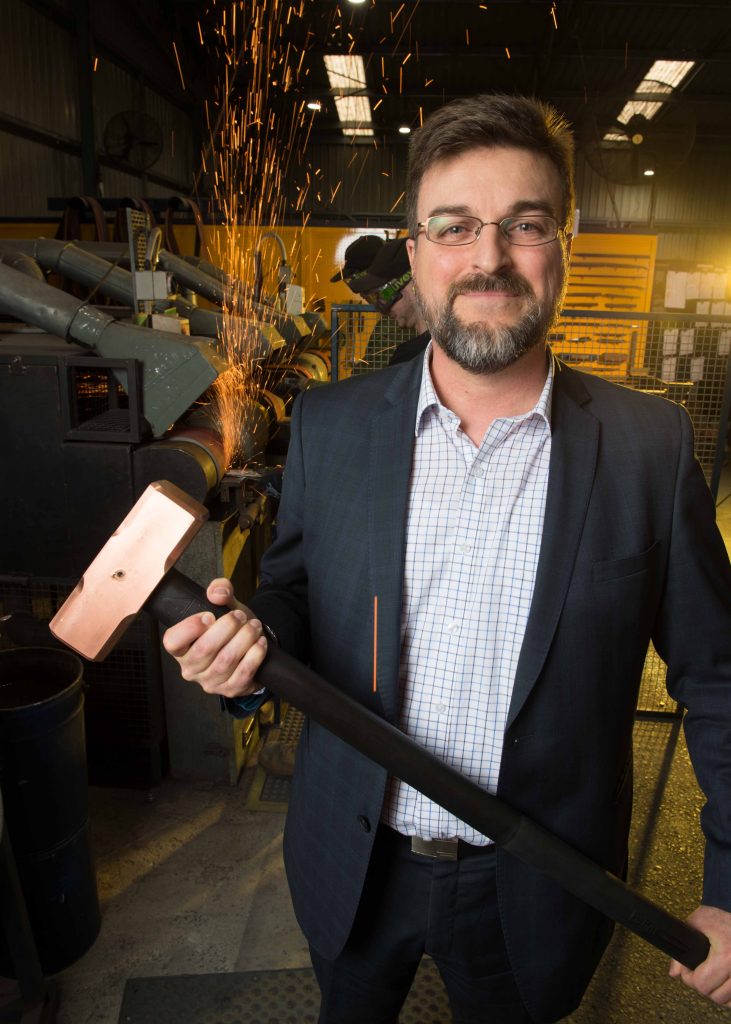Institution: Melbourne Business School
Course: Futures Thinking & Strategy Development Program
The Industry Leaders Fund is to be commended for its contribution to developing South Australian leadership skills, experience and knowledge through education.
Mumme Tools was established in the years following the Great Depression of the 1930s and has proudly forged tools in South Australia for over 80 years, ultimately becoming Australia’s leading manufacturer of quality forged hand tools.
As with much local manufacturing, Mumme Tools faces daily challenges to the sustainability of our business from a variety of sources, including imports from emerging economies on one hand and rising local input costs on the other. What sets us apart is our people: our skills, passion, resourcefulness and an openness to finding creative ways to develop cost-effective solutions.
The Industry Leaders Fund provided me with an opportunity to attend the Melbourne Business School’s Futures Thinking and Strategy Development Program. The course is designed to encourage business leaders to think beyond the immediate financial planning cycle and consider how a changing world might impact society, consumers and industry over the longer term. The course explores the links between culture, strategy and leadership. It gives participants tools to build up scenarios of the future based on emerging trends and known problems, in order to consider how a business might build sufficient flexibility into its long-term strategy to accommodate a range of potential outcomes or events.
Having completed an MBA back at the turn of the century, the Futures Thinking and Strategy Development Program was a valuable way to update my knowledge of how strategy professionals approach futures thinking, and in particular the emerging trends they see through their global teaching engagements and consultancy work. A specific example of course content that resulted in activity immediately after was a discussion on 3D printing and how that might be applied to the creation of tools or dies in future. This led to interaction back in Adelaide with two new ventures working on 3D printing technology, and that in turn generated a better understanding of some of our current cost structures that we may not otherwise have considered. Whether or not “tradies in the future will be printing their own tools in their sheds as they need them”, the starting point of that particular conversation, there is merit in considering what the implications to our business might be were that potential scenario to eventuate and how we might put ourselves in a position to turn it to our advantage.
The benefit to Mumme Tools of my study through the ILF grant is, I hope, an improved ability on my part to appreciate the value in looking beyond the budget/forecast period and to work with my management team more effectively in considering how Mumme Tools might adapt its practices over time to ensure we are still thriving in another 80 years.

